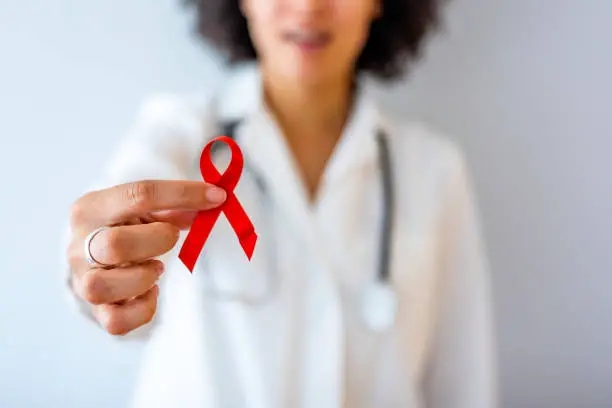Grants for HIV/AIDS play a crucial role in supporting initiatives aimed at preventing, treating, and managing HIV/AIDS globally.
These grants are often provided by government agencies, non-profit organizations, and international bodies. The overarching goal is to combat the HIV/AIDS pandemic by funding diverse programs. These can include research, education, healthcare services, and community outreach.
The Importance of Grants for HIV/AIDS
Grants for HIV/AIDS hold paramount importance in the ongoing battle against this global pandemic. These funding mechanisms are crucial for various reasons, contributing significantly to prevention, treatment, research, and support initiatives.
- Research Advancements:
- Grants fuel groundbreaking research endeavors, supporting scientists and institutions in their quest for a deeper understanding of the virus. This research is instrumental in developing new medications, treatment protocols, and eventually finding a cure for HIV/AIDS.
- Access to Treatment and Medications:
- Financial assistance from grants ensures broader access to antiretroviral therapy (ART) and other essential medications. This is particularly vital in resource-limited regions where individuals might otherwise face barriers in obtaining life-saving treatments.
- Community Education and Awareness:
- Grants play a pivotal role in funding educational programs and awareness campaigns. These initiatives help dispel myths, reduce stigma, and educate communities about prevention methods, testing, and the importance of early treatment.
- Prevention Programs:
- Funds from grants support comprehensive prevention programs, including distribution of condoms, needle exchange programs, and educational outreach. These initiatives are essential in curbing the spread of the virus, especially among high-risk populations.
- Healthcare Infrastructure Strengthening:
- Grants contribute to building and strengthening healthcare infrastructure, particularly in regions heavily affected by HIV/AIDS. This includes establishing testing centers, clinics, and laboratories equipped to handle diagnosis, treatment, and monitoring.
- Support for Vulnerable Populations:
- Grants are instrumental in supporting vulnerable populations, such as LGBTQ+ communities, sex workers, and injecting drug users, who may face increased risks of HIV/AIDS. Programs funded by grants address their unique needs and provide targeted support.
- Capacity Building:
- Financial support from grants facilitates training for healthcare professionals, ensuring that they are equipped with the knowledge and skills to effectively manage and treat individuals with HIV/AIDS. This capacity building is essential for sustaining long-term healthcare efforts.
- Global Collaboration:
- Grants foster international collaboration by supporting initiatives that bring together researchers, healthcare professionals, and organizations from different countries. This collaborative approach facilitates the sharing of knowledge, resources, and best practices in the fight against HIV/AIDS.
- Emergency Response and Pandemic Preparedness:
- Grants provide rapid funding in times of crises, enabling swift responses to emerging challenges, such as the introduction of new HIV strains or unforeseen outbreaks. This ensures that healthcare systems are prepared to address evolving threats.
- Measuring and Evaluating Impact:
- Grants support the development and implementation of monitoring and evaluation systems. This allows organizations to assess the impact of interventions, identify areas for improvement, and ensure that resources are allocated effectively.
Comprehensive List of Funders awarding Grants for HIV/AIDS
- The Global Fund to Fight AIDS, Tuberculosis, and Malaria:
- A major international funding organization that supports programs to prevent, treat, and manage HIV/AIDS globally.
- PEPFAR (President’s Emergency Plan for AIDS Relief):
- A U.S. government initiative providing significant funding for HIV/AIDS programs in over 50 countries.
- Bill & Melinda Gates Foundation:
- A philanthropic organization that supports global health initiatives, including substantial contributions to combat HIV/AIDS.
- UNITAID:
- An international organization that focuses on accelerating access to HIV/AIDS and other health interventions.
- CDC (Centers for Disease Control and Prevention):
- The U.S. government agency that provides funding for domestic and international HIV/AIDS prevention and control programs.
- NIH (National Institutes of Health):
- The primary agency for conducting and supporting medical research, including funding for HIV/AIDS-related research projects.
- USAID (United States Agency for International Development):
- Provides support for various health programs, including those addressing HIV/AIDS in developing countries.
- Elton John AIDS Foundation:
- A private foundation that funds projects supporting people affected by HIV/AIDS, including prevention, education, and healthcare.
- AmfAR (The Foundation for AIDS Research):
- A non-profit organization dedicated to supporting research to end the global AIDS epidemic.
- UNAIDS (Joint United Nations Programme on HIV/AIDS):
- An international organization that works to coordinate the global response to HIV/AIDS, supporting various programs and initiatives.
- The Wellcome Trust:
- A global charitable foundation that funds research, including projects related to HIV/AIDS.
- Kaiser Family Foundation:
- A non-profit organization focusing on health issues, including research and analysis related to HIV/AIDS.
- CDC Foundation:
- A non-profit organization that collaborates with the CDC to secure funding for public health initiatives, including those addressing HIV/AIDS.
- Gilead COMPASS Initiative:
- A program by Gilead Sciences that provides funding to community organizations working on the frontlines of the HIV epidemic in the Southern United States.
- AIDS Healthcare Foundation (AHF):
- A global non-profit organization that provides funding for HIV/AIDS prevention, treatment, and advocacy.
- Clinton Health Access Initiative (CHAI):
- Works to improve global health by increasing access to treatment and care for HIV/AIDS and other diseases.
- ViiV Healthcare Positive Action for Children Fund:
- Focuses on supporting projects to eliminate mother-to-child transmission of HIV and improve the health of women and children affected by the virus.
- MAC AIDS Fund:
- The philanthropic arm of MAC Cosmetics, providing funding to support organizations addressing HIV/AIDS globally, with a focus on vulnerable populations.
- Open Society Foundations:
- Supports initiatives that promote human rights, including efforts to combat discrimination and stigma associated with HIV/AIDS.
- Ford Foundation:
- Funds projects that aim to reduce health inequalities, including support for HIV/AIDS programs with a focus on social justice.
When seeking grants, it’s crucial to explore regional and local funding opportunities, as well as partnerships with governmental health agencies and community foundations. Additionally, regularly check the specific eligibility criteria and application processes of each funder, as they may evolve over time.
How to Apply for the Grant
Applying for a grant for HIV/AIDS initiatives involves a systematic and well-prepared approach. While the specific requirements may vary among funders, the following general guidelines can help you navigate the application process effectively:
- Identify Suitable Grant Opportunities:
- Research and identify grants that align with your project’s goals. Consider the eligibility criteria, funding priorities, and geographic focus of each potential funder.
- Understand the Funder’s Priorities:
- Familiarize yourself with the specific priorities and objectives of the funding organization. Tailor your proposal to demonstrate a clear alignment with their mission and goals.
- Develop a Detailed Project Plan:
- Clearly outline your project, detailing its objectives, methodology, and expected outcomes. Provide a comprehensive timeline and budget that clearly articulates how the grant funds will be utilized.
- Gather Necessary Documentation:
- Collect all required documentation, including organizational information, financial statements, and any supporting materials requested by the funder. Ensure that your organization meets the eligibility criteria.
- Craft a Compelling Proposal:
- Write a compelling and well-structured proposal. Clearly state the problem your project aims to address, describe your approach, and highlight the anticipated impact. Emphasize the significance of your project in the context of HIV/AIDS prevention, treatment, or support.
- Demonstrate Community Engagement:
- If applicable, emphasize community involvement and engagement in your project. Illustrate how the initiative responds to the specific needs and challenges of the communities affected by HIV/AIDS.
- Budget Justification:
- Provide a detailed budget, including all expected expenses and a clear justification for each cost. Ensure transparency and accuracy in your financial projections.
- Partnerships and Collaborations:
- Highlight any partnerships or collaborations that strengthen your project. Demonstrate how these partnerships contribute to the success and sustainability of your initiative.
- Monitoring and Evaluation Plan:
- Develop a robust plan for monitoring and evaluating the success of your project. Clearly outline key performance indicators and methodologies for assessing the impact of your intervention.
- Compliance and Reporting:
- Familiarize yourself with the reporting requirements and compliance standards set by the funder. Ensure that your organization can meet these expectations throughout the grant period.
- Submit a Complete Application:
- Carefully follow the application instructions provided by the funder. Submit all required documents and ensure that your application is complete, accurate, and submitted by the deadline.
- Follow Up:
- After submission, be proactive in following up with the funder if there are any additional requirements or clarifications needed. Demonstrate your commitment and responsiveness throughout the application process.
The Impact of the Grant
The impact of a grant for HIV/AIDS initiatives extends far beyond the immediate financial support. It influences various aspects of healthcare, research, community engagement, and overall progress in the fight against the HIV/AIDS pandemic. Here’s an in-depth exploration of the potential impact:
- Advancements in Research and Treatment:
- Grants provide critical funding for research endeavors, leading to advancements in understanding the virus, developing new medications, and improving treatment protocols. This can ultimately contribute to better outcomes for individuals living with HIV/AIDS.
- Increased Access to Healthcare Services:
- Funding supports the expansion and improvement of healthcare infrastructure, ensuring increased access to essential services such as testing, counseling, and antiretroviral treatment. This is particularly vital in regions with limited healthcare resources.
- Prevention and Education Initiatives:
- Grants play a pivotal role in funding prevention programs, including educational campaigns, distribution of contraceptives, and outreach efforts. These initiatives contribute to reducing new infections and raising awareness about safe practices.
- Community Empowerment and Support:
- Grant-funded projects often empower communities affected by HIV/AIDS. Support groups, counseling services, and initiatives addressing stigma help create a supportive environment, enhancing the overall well-being of individuals and families impacted by the virus.
- Capacity Building and Training:
- Funds allocated for capacity building and training initiatives strengthen the skills of healthcare professionals. This, in turn, enhances the quality of care provided to individuals with HIV/AIDS, leading to better health outcomes.
- Global Collaboration and Knowledge Sharing:
- Grants encourage collaboration between researchers, healthcare professionals, and organizations globally. This collaborative approach facilitates the sharing of knowledge, expertise, and best practices, fostering a more comprehensive and effective response to the pandemic.
- Reduction of Stigma and Discrimination:
- Grant-supported projects often focus on reducing the stigma and discrimination associated with HIV/AIDS. This contributes to creating an environment where individuals feel more comfortable seeking testing, treatment, and support.
- Innovation in Healthcare Delivery:
- Funding allows for the exploration and implementation of innovative healthcare delivery models. Telemedicine, mobile clinics, and community-based interventions are examples that can enhance access to healthcare services, especially in remote or underserved areas.
- Empowering Key Populations:
- Grants often target key populations at higher risk of HIV/AIDS, such as LGBTQ+ communities, sex workers, and injecting drug users. By addressing the specific needs of these populations, grants contribute to a more inclusive and effective HIV/AIDS response.
- Epidemic Preparedness and Emergency Response:
- Grant-funded initiatives help build resilience in healthcare systems, preparing them to respond effectively to emergencies, new HIV strains, or unforeseen outbreaks. This ensures a more agile and responsive healthcare infrastructure.
- Measurable Impact through Monitoring and Evaluation:
- Grants typically require robust monitoring and evaluation mechanisms. This results in a more accurate assessment of the impact of interventions, allowing for data-driven decisions and continuous improvement in program effectiveness.
- Policy Influence and Advocacy:
- Grant-supported organizations often engage in policy advocacy. By influencing policy decisions, these organizations can create an environment that is conducive to effective HIV/AIDS prevention, treatment, and support efforts.
Tips for Writing a Successful Grant Proposal
Writing a successful grant proposal for HIV/AIDS initiatives requires a strategic and well-organized approach. Here are in-depth tips to help you craft a compelling grant proposal:
- Understand the Funder’s Priorities:
- Thoroughly research the funding organization to understand its mission, values, and specific priorities. Tailor your proposal to align with the funder’s goals and demonstrate a clear understanding of their focus areas related to HIV/AIDS.
- Clearly Define the Problem and Objectives:
- Begin by clearly defining the problem or need your project aims to address. Articulate the objectives of your initiative in a way that is specific, measurable, achievable, relevant, and time-bound (SMART).
- Provide a Comprehensive Project Plan:
- Outline your project plan in detail, including the methodology, activities, and timelines. Clearly illustrate how each component contributes to achieving the project’s objectives. Ensure that your plan is feasible and well-structured.
- Demonstrate Community Engagement:
- Highlight the involvement of the community in your project. Describe how you have engaged with the target population and incorporated their input into the design and implementation of your initiative. This demonstrates the relevance and sustainability of your project.
- Showcase Innovation:
- Highlight any innovative approaches or strategies your project employs. This could include the use of technology, community-based interventions, or unique partnerships. Innovation can make your proposal stand out and showcase your organization’s forward-thinking approach.
- Provide a Strong Rationale:
- Justify why your project is essential. Clearly articulate the significance of addressing the identified problem and explain how your intervention will make a meaningful impact on the HIV/AIDS landscape.
- Budget Transparency and Justification:
- Develop a detailed budget that aligns with the project plan. Be transparent about how grant funds will be allocated, and provide a thorough justification for each expense. Ensure that your budget is realistic and directly tied to achieving project objectives.
- Partnerships and Collaborations:
- Highlight any existing or potential partnerships that enhance the strength and impact of your project. Collaborations with other organizations, government agencies, or community groups can add credibility to your proposal.
- Monitoring and Evaluation Framework:
- Develop a robust monitoring and evaluation plan. Clearly outline the key performance indicators (KPIs) and the methodology for assessing the success of your project. This demonstrates your commitment to accountability and continuous improvement.
- Address Sustainability:
- Clearly articulate how your project will be sustained beyond the grant period. Discuss plans for securing additional funding, community buy-in, or institutional support to ensure the longevity and impact of your initiative.
- Tell a Compelling Story:
- Craft a narrative that resonates with the funder. Use compelling language to convey the urgency and importance of your project. Share real-life stories, testimonials, or case studies that illustrate the human impact of your work.
- Proofread and Edit:
- Ensure that your proposal is free of grammatical errors and typos. A well-edited and polished document reflects professionalism and attention to detail.
- Submit Well Before the Deadline:
- Avoid last-minute submissions. Submit your proposal well before the deadline to allow for any unforeseen issues. This also demonstrates your organization’s commitment and reliability.
- Follow Up After Submission:
- If possible, follow up with the funder after submitting your proposal. Seek feedback, clarify any questions, and express your gratitude for the opportunity. This can help build a positive relationship with the funding organization.




